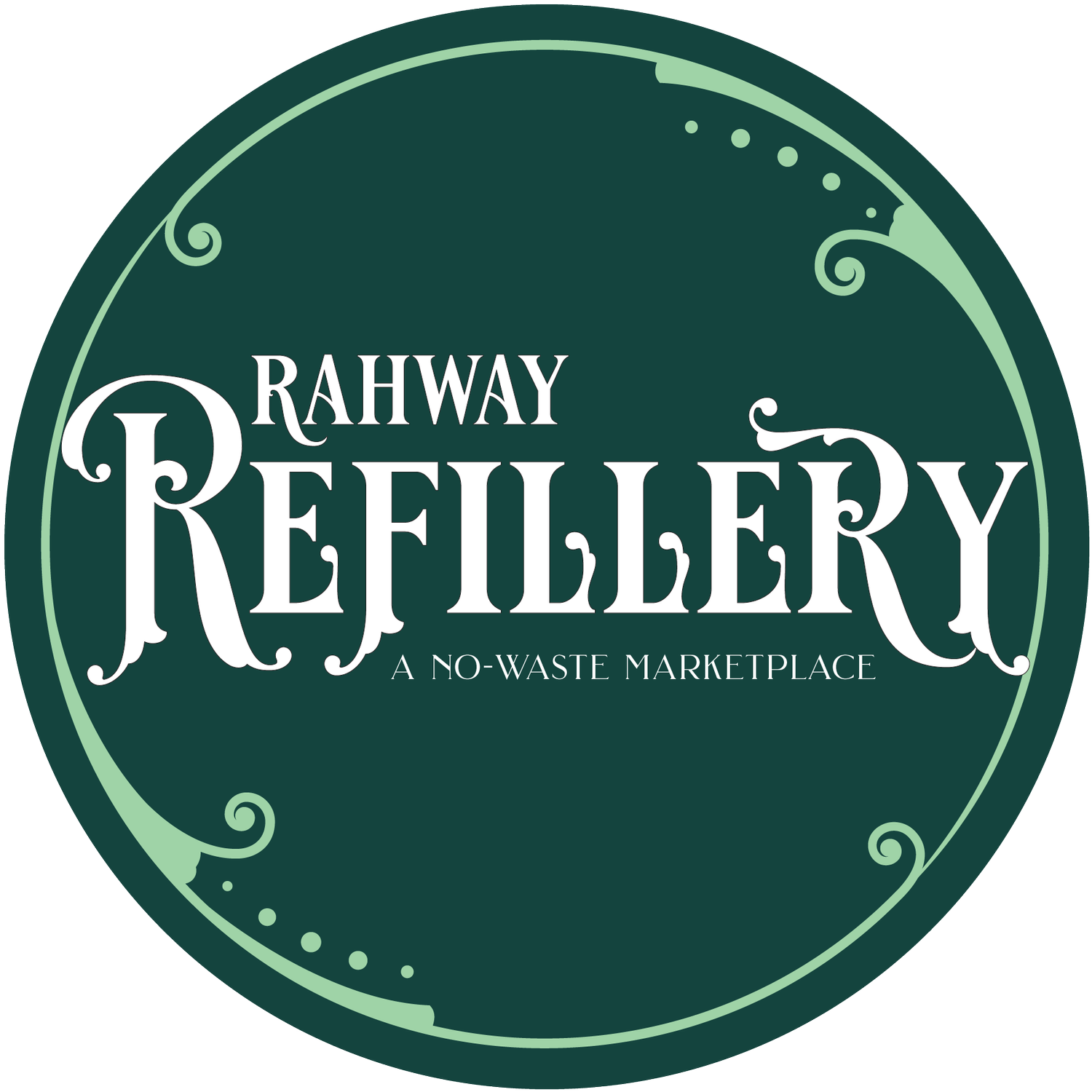A Sustainable New Year: 5 Eco-Friendly Habits to Practice
New year, new habits! Embracing sustainability in the new year is not just a resolution; it's a commitment to the well-being of ourselves, our family, our planet, and future generations. With that being said, jumping on the sustainable bandwagon is not always easy and takes practice.
Luckily, here at Rahway Refillery we are committed to bringing sustainability into your home and guide you to a new way of living. With these 5 money-saving, toxin-free practices, you will prevent waste from contaminating our Earth’s water, soil, and crops.
#1: Invest in Reusable or Biodegradable Products.
Reusable paper towels, water bottles, coffee cups, and bags are some products that are good for the environment and your wallet. Reusable paper towels, like Marley’s 12 pack UNpaper Towels, save you from using hundreds of single use rolls. On average, a single use roll costs around $2; therefore, with reusable paper towels, you can save up to $200. In the instances a product can not be reused, you can reduce your footprint on the environment with biodegradable ingredients. For example, choose a biodegradable garbage bag over a plastic bag.
Dryer Balls Can Be Used for up to 1000 LOADS-
Saves you money and creates less waste.
#2: Use Eco-Friendly Cleaning Products.
A clean home is a happy home. As much as we work hard to make sure our dwellings are safe and habitable, products in the United States do not go far enough to protect the environment nor a consumer’s health. With encyclopedia size lists of ingredients, many products have detrimental impacts an average consumer does not realize. Here are some common household cleaning product ingredients to avoid:
Bleach
Ammonia
Volatile Organic Compounds (chemicals that can easily dissolve into the air such as benzene, ethanol, and synthetic fragrances)
Phthalates
Phosphate-based products
2-Butoxyethanol
Common chemicals like these can negatively impact your health and well-being. Inhaling significant quantities of these ingredients can lead to irritation, respiratory effects, memory loss, fatigue, headaches, liver and kidney damage, and even cancer.
Alternatives to these chemicals with the same efficacy are vinegar, baking soda, hydrogen peroxide, and essential oils for fragrance. You can find non-toxic bathroom cleaners, all-purpose cleaners, laundry concentrates, and dish soap at our refill bar. Pair with Washclouds’ Nordic Dish Washing Sponge Cloth or Marley’s Washable Sponges for an ultimate cleaning experience. Additionally, be free of invisible harmful fumes while creating an aromatic space with our soy-based Lovelight refillable candles.
#3: Unplug Your Devices.
Ever heard of the term phantom energy? Phantom energy is used to describe powered off electronics that continuously draw electricity because they remain plugged. Examples are:
Lamps
TVs
Chargers (even if it is not connected to a device)
Computers
Audio Equipment
Coffeemakers
Electric Kettles
Studies show that 5-10% of residential electricity usage is from phantom or standby energy. Globally, 1% of all electricity usage is standby energy. 5-10% may seem small, but this can amount to $60-$120 of your electricity bill. By unplugging devices not in use, you can utilize your hard-earned income for other necessities.
#4: Start Composting
Now this can be a harder step toward sustainability, especially if you live in an urban area with no garden space. However, composting is beneficial and a worthy practice to start. Composting is recycling food scrap and transforming it into nutrient-rich soil for plants. I know what you’re thinking—”that’s going to stink.” There is a common misconception that your household will smell like rotting food when you start composting. These days, composting bins have filters to remove the odor of decomposition while serving its purpose. Our 8 inch composting bins have biodegradable, replaceable filters to ensure your household retains its fresh scent!
Don’t have space for a garden? Large spaces are not required for raising indoor plants or composting. Many plants, like snake plants, are easy to raise and can provide your household with clean, fresh oxygen. Cleaner air means healthier body cells and a healthy environment.
WE OFFER THE COMPLETE SET OF BINS AND BAGS TO GET YOUR COMPOST JOURNEY STARTED!
#5: Up-cycle or Donate.
What is up-cycling? Up-cycling is defined as a way to create a product of higher value by reusing the original. Essentially, you are finding ways to re-purpose your items rather than discard them. Up-cycling allows you to ignite your creativity while saving money. If you’re especially good at the craft, you can sell your creations and earn profit. At our store, we introduce this concept with our refill bar; instead of ditching that old hair detangler spray bottle, give it a new life by filling it with an all-purpose cleaner! Donating your up-cycled/good conditioned wardrobe or materials can make a difference in someone’s life this new year.
BONUS: Make a SMART Action Plan.
Completing any goal in life requires an action plan; sustainability is no different! Committing to a plan can ease you into sustainable living one step at a time. For example, an action plan could be: for 2 weeks, you will set an alarm to take 3 minutes before you leave your house everyday to ensure all electronics are unplugged. By the end of those two weeks, it will hopefully become a habit you no longer need to set an alarm for. Following a Specific, Measurable, Attainable, Relevant, and Timely (SMART) goal ensures higher probability of transforming eco-friendly practices into habits!
By incorporating these sustainable practices into your daily life, you're not just making a resolution—you're creating a positive impact on your well-being, your family, our planet, and future generations. Here's to a sustainable and happy new year!


